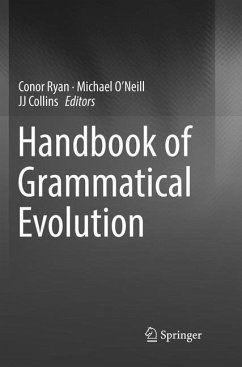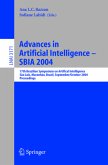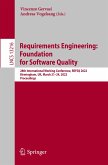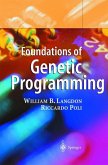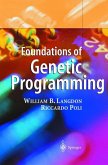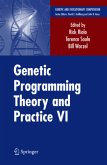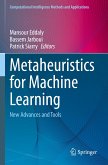This handbook offers a comprehensive treatise on Grammatical Evolution (GE), a grammar-based Evolutionary Algorithm that employs a function to map binary strings into higher-level structures such as programs. GE's simplicity and modular nature make it a very flexible tool. Since its introduction almost twenty years ago, researchers have applied it to a vast range of problem domains, including financial modelling, parallel programming and genetics. Similarly, much work has been conducted to exploit and understand the nature of its mapping scheme, triggering additional research on everything from different grammars to alternative mappers to initialization.
The book first introduces GE to the novice, providing a thorough description of GE along with historical key advances. Two sections follow, each composed of chapters from international leading researchers in the field. The first section concentrates on analysis of GE and its operation, giving valuable insight intoset up and deployment. The second section consists of seven chapters describing radically different applications of GE.
The contributions in this volume are beneficial to both novices and experts alike, as they detail the results and researcher experiences of applying GE to large scale and difficult problems.
Topics include:
- Grammar design
- Bias in GE
- Mapping in GE
- Theory of disruption in GE
· Structured GE
· Geometric semantic GE
· GE and semantics
· Multi- and Many-core heterogeneous parallel GE
· Comparing methods to creating constants in GE
· Financial modelling with GE
· Synthesis of parallel programs on multi-cores
· Design, architecture and engineering with GE
· Computational creativity and GE
· GE in the prediction of glucose for diabetes
· GE approaches to bioinformatics and system genomics
· GE with coevolutionary algorithms in cybersecurity
· Evolving behaviour trees with GE for platform games
· Business analytics and GE for the prediction of patient recruitment in multicentre clinical trials
The book first introduces GE to the novice, providing a thorough description of GE along with historical key advances. Two sections follow, each composed of chapters from international leading researchers in the field. The first section concentrates on analysis of GE and its operation, giving valuable insight intoset up and deployment. The second section consists of seven chapters describing radically different applications of GE.
The contributions in this volume are beneficial to both novices and experts alike, as they detail the results and researcher experiences of applying GE to large scale and difficult problems.
Topics include:
- Grammar design
- Bias in GE
- Mapping in GE
- Theory of disruption in GE
· Structured GE
· Geometric semantic GE
· GE and semantics
· Multi- and Many-core heterogeneous parallel GE
· Comparing methods to creating constants in GE
· Financial modelling with GE
· Synthesis of parallel programs on multi-cores
· Design, architecture and engineering with GE
· Computational creativity and GE
· GE in the prediction of glucose for diabetes
· GE approaches to bioinformatics and system genomics
· GE with coevolutionary algorithms in cybersecurity
· Evolving behaviour trees with GE for platform games
· Business analytics and GE for the prediction of patient recruitment in multicentre clinical trials

